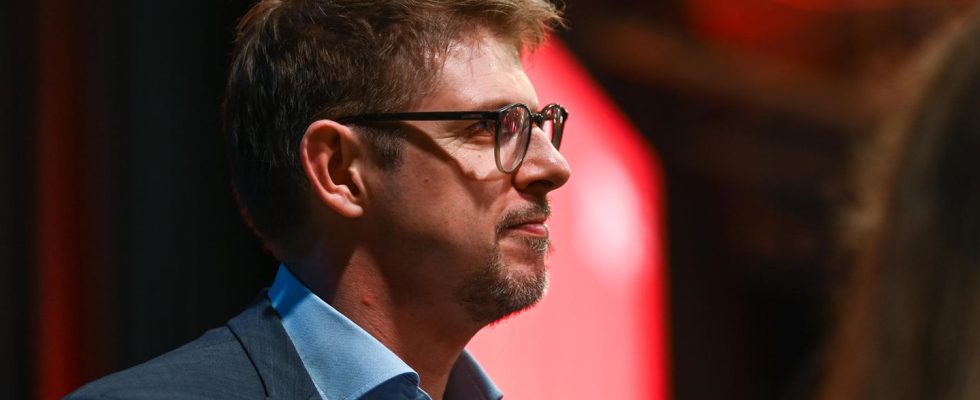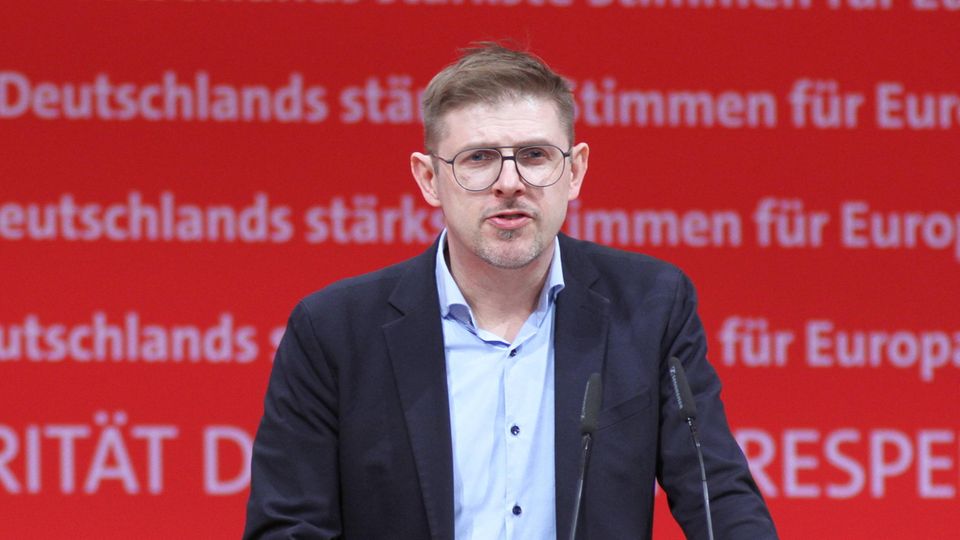column
Fried – view from Berlin
Violence against politicians – what responsibility each and every one of us has
Matthias Ecke (SPD) was brutally beaten while hanging up an election poster in Dresden
© Heiko Rebsch/dpa
More and more politicians are being physically attacked, most recently Matthias Ecke from the SPD. This violence has reached the center of society. Our author believes we should rethink our image of politics.
Now there’s also the fear.
Many politicians have been attacked before Ecke, including physically. Every case is different. The origins of the perpetrators, their age and their motives differ. The victims belong to different parties. Fortunately, their injuries are not all as severe as Matthias Ecke’s. The cases have one thing in common: the people were attacked, beaten, threatened or insulted because they were politically active.
Since the beginning of the year, the Ministry of the Interior in Dresden has announced that more than 110 politically motivated crimes in connection with elections have been registered in Saxony. Nationwide, the number of attacks has recently increased significantly. If you compare the number of victims between the parties, representatives of the Greens were particularly often insulted and threatened in 2023. It is also true that most of the crimes of physical violence were committed against AfD politicians. This is what federal government statistics say.
The so-called middle of society has a responsibility
We hear and read that violence against politicians has reached the center of society. What exactly does that mean? There is some evidence to suggest that the incitement of populists and their ruthlessness in portraying other politicians as failures or traitors has lowered inhibitions. Violence doesn’t just start with a punch in the face. Among foreigners, Jews, Muslims and other social groups, people know from their own experience how constant stigmatization restricts life because people exchange parts of their personal freedom for more than the usual caution. Threats against a politician’s family can leave children psychologically damaged for life without ever resulting in a physical attack.
But the so-called middle of society also has a responsibility for how fertile the soil is on which contempt for, and even hatred of, politicians is born. We are all susceptible to accepting prejudices as truth: How quickly does one in the family or among neighbors agree that political decisions that contradict personal ideas can only be objectively wrong? We are all susceptible to viewing individual mistakes as systemic deficits: How quickly do you see the postponement of a school renovation as a symptom of a general failure of local politics?
No, that’s not why you strike straight away, that’s true. But you create a fatal social division in which the citizens are on one side and the politicians on the other. Such a view also endangers democracy. It is at the beginning of a path that can end in brutality against politicians.
Election posters can sometimes seem depressing in their intellectual simplicity. But as long as we see them, there are people who hang them. If you ever meet one of them, you as a member of society could say: I think it’s good that you’re getting involved.




